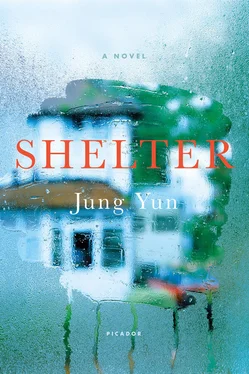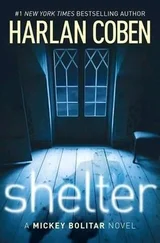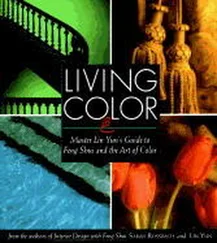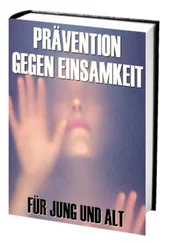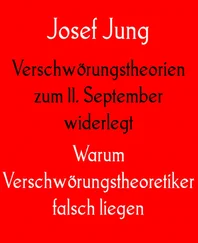“You did this,” Jin repeats.
And because he believes this too, Kyung can’t summon a response. All he can do is stare at Connie, studying his reactions from a distance — nodding, nodding, nodding, and then a surge of air that expands his chest, followed by a slow shake of his head. One of the officers leans over and whispers in his ear. Not a sentence or two, but something that takes much longer. When he finishes, Connie nods again and starts walking back, keeping his eyes on the road. By the time he returns, his lips pursed and skin ashen, Kyung already knows what’s coming. His mother and Marina are gone. As he hears the words out loud, he pushes Connie away, harder and harder until Connie has no choice but to wrap him in his arms and hold him still. Kyung’s legs go out from underneath him and he falls on the hot asphalt, screaming as the crowd of strangers looks on. Women begin to corral their kids, leading them away from the spectacle, while the men turn their heads, unable to watch.
The things he said at dinner were meant to hurt Mae, to hurt both of his parents as much as they’d hurt him. But not once did he imagine that something like this would happen. All he wanted was for them to know. He was tired of pretending. Why did saying so make her react when so many things never did? It makes no sense to him — the fact that she wouldn’t leave a man who beat her, but this was the moment she chose to flee, that he was the person she finally chose to flee from. Kyung can’t stop crying. He’s desperate to tell Mae he’s sorry, to hear the same words from her. However much he denied it, he always hoped they’d be kinder to each other one day, like people who were grateful to survive something instead of people still fighting to survive. Wherever that small seed of hope resided, it no longer exists, and what they were to each other is what they’ll always be. Tethered, somehow. Drawn together by a force that should have kept them close but repelled them instead.
“Worthless,” Jin shouts.
Kyung feels a hard slap to the head.
“You worthless, no-good waste of life.”
He lifts his arms to shield himself, but the blows keep coming at him from above.
“You did this, you selfish, no-good son of a bitch. You were never any goddamn good. Never — do you hear me?”
Kyung rolls over onto his side, bringing his knees to his chest to make himself small. The blows are coming faster now, the open hands turning into hard, tight fists.
“Easy,” Connie says. “Easy.”
He remains on his side, waiting for his father to continue. When he doesn’t, Kyung looks up and sees Jin standing over him with his arms pinned back by Connie. His glasses are bent and crooked. What little hair he has left is wild. Even now, with a bigger, stronger man holding him back, he’s still as frightening as ever.
“Jesus,” Connie says, staring at Kyung’s pants.
A warm sensation spreads below him, lasting only a few seconds before it turns cold and damp. Kyung covers himself, not so much ashamed of what he did, but confused that he didn’t notice it before.
“You pathetic, worthless—”
Jin is about to kick him, but Connie quickly blocks his path. The shuffling of their feet raises a cloud of dust in Kyung’s face that invades his eyes and mouth. He gets on all fours, trying to cough out the dirt and grit.
“Take it easy now. Leave him be. It wasn’t entirely his fault.”
Jin shakes free. “You heard what he said last night. The only reason she got in that car was to get away from him. She had no business driving — she barely knew how.”
“She knew what she was doing,” Connie says.
“What does that mean?”
“The officers will come talk to you when they’re done.”
“Talk to me about what?”
Connie offers his hand to Kyung, getting him on his feet. He tries to avoid looking at the wet spot on his pants, or the puddle of piss he left on the road.
“Nothing,” Connie says. “You just have to be prepared, is all.”
Jin marches in front of him, pushing his face directly beneath his. “What are you saying? What did they tell you?”
“They’ll come over and explain in a second.”
“ No. I want you to explain it to me now.”
Connie takes a step backward. “I’m sorry, Jin.” He hesitates, scanning the crowd for the officers, both of whom are guiding the tow truck as it backs out into traffic. “They don’t think it was an accident.”
“Of course it was an accident. She didn’t know how to drive.”
“But the road”—Connie points at the asphalt, drawing a straight line from where they’re standing to the tree in front of the house—“there aren’t any skid marks. That means she didn’t hit the brakes.”
“Maybe she got confused about the pedals.”
“Some of the neighbors said she sped up on purpose. Right before the tree, they heard her gun it.”
Jin doesn’t blink as he examines the unmarked stretch of asphalt, slowly tracing the car’s path from the road to the lawn to the tree. “She was confused, that’s all. She thought the gas was the brake.” He studies it again, as if to convince himself that what he said was true. Then he turns to Connie, stabbing his finger at him. “We’re Christian — do you understand what that means? She wouldn’t have done this to herself on purpose; she can’t. It’s not allowed.”
Connie looks pained, as if he regrets opening his mouth, but now he has to finish what he started. “She left a note, Jin. It was on the floor, next to her seat. I’m sorry, I should have let them tell you.”
The tow truck drives off, dragging the carcass of the Jeep behind it. Kyung follows the swirling lights until they disappear into the distance. The lanes open up from one to two and traffic begins to move again, filling the air with a dense cloud of exhaust. Behind him, Jin is still arguing with Connie, but their voices fade out, replaced by a memory of something his mother said not long ago. It never made sense to him as completely as it does now. You have to have a plan. Kyung repeats these words to himself as he looks at his shadow stretched diagonally across the pavement. The longer he studies the rough black surface, the more clearly he sees it, the moment of impact. Marina’s face has sunk into itself — eyes closed, mouth open, screaming. But his mother is staring right at it, at the death she knows is coming, and for once, she’s not afraid.
* * *
The note she left behind isn’t a note at all. It’s an inventory, the same one she was compiling for the insurance company. The handwritten list is twenty-eight pages long, documenting every item she ever bought for the houses in Marlboro and Orleans. Kyung spends the first two days after the accident sitting on the beach, studying the list through a haze of Valium. On the far right, Mae had added a column indicating who should receive what upon her death. Molly’s name is there, beside a bowl described as Regency, glass, 8 inches wide, living room. He also recognizes the names of her decorator and several women from church. Gillian is nothing more than a footnote at the end, one that makes it entirely clear how Mae felt about her. Anything my friends don’t want can go to my daughter-in-law.
The inventory seems like proof of the obvious. Mae was planning to end her life long before they arrived in Orleans. That’s why she wanted to learn how to drive, why she was willing to go to the Cape, why she chose to bring Marina with them. She had a plan all along. Knowing this should provide some thin sliver of comfort, but Kyung is crippled with doubt, unsure if the things he said hastened the plan’s timeline or confirmed the need for it to exist. As the haze begins to lift and he sees the signs he missed, Kyung considers walking into the ocean, walking and walking until the water’s pressure crushes the guilt building up inside him. He doesn’t know how else to make it go away.
Читать дальше
